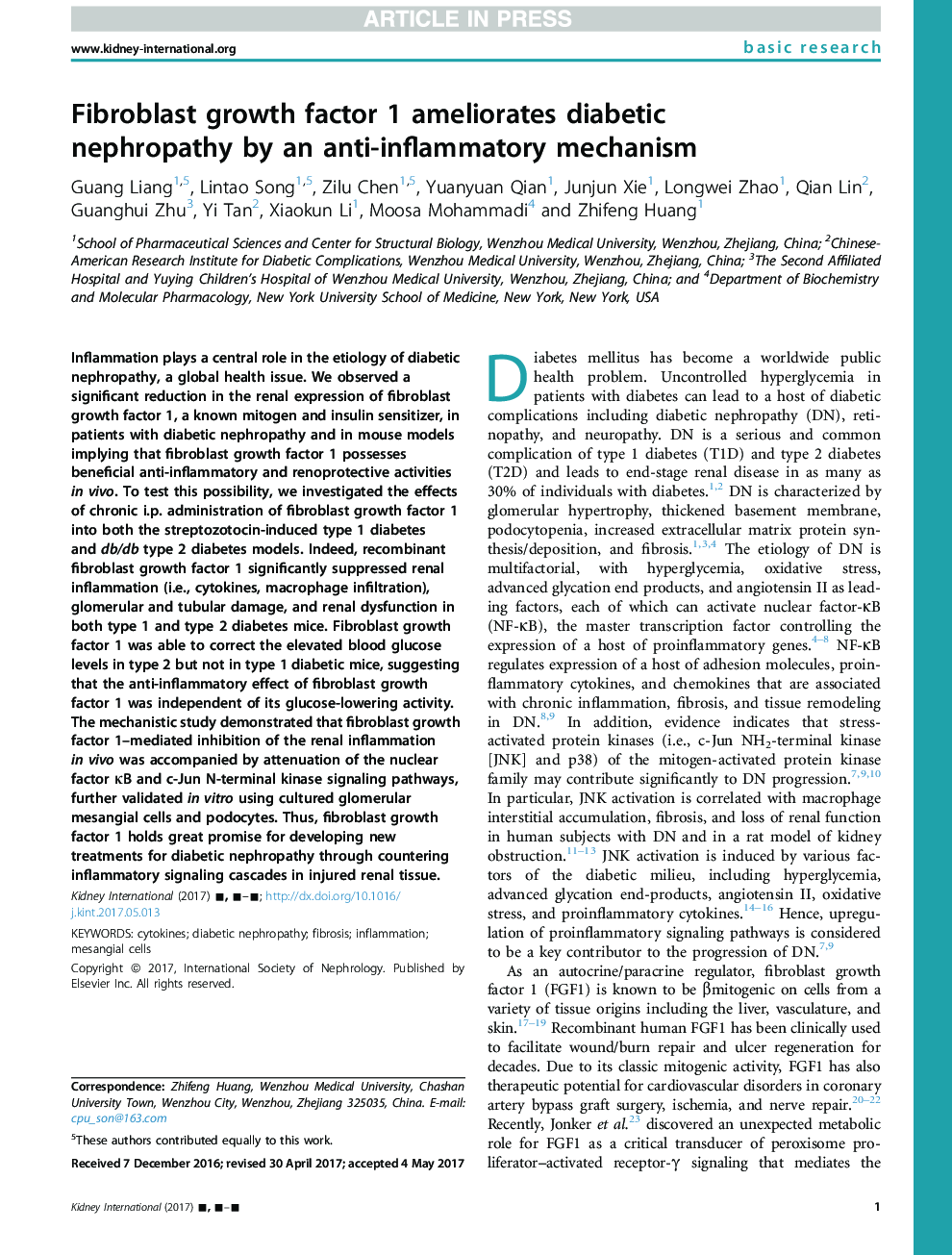| Article ID | Journal | Published Year | Pages | File Type |
|---|---|---|---|---|
| 8773027 | Kidney International | 2018 | 15 Pages |
Abstract
Inflammation plays a central role in the etiology of diabetic nephropathy, a global health issue. We observed a significant reduction in the renal expression of fibroblast growth factor 1, a known mitogen and insulin sensitizer, in patients with diabetic nephropathy and in mouse models implying that fibroblast growth factor 1 possesses beneficial anti-inflammatory and renoprotective activities in vivo. To test this possibility, we investigated the effects of chronic intraperitoneal administration of fibroblast growth factor 1 into both the streptozotocin-induced type 1 diabetes and db/db type 2 diabetes models. Indeed, recombinant fibroblast growth factor 1 significantly suppressed renal inflammation (i.e., cytokines, macrophage infiltration), glomerular and tubular damage, and renal dysfunction in both type 1 and type 2 diabetes mice. Fibroblast growth factor 1 was able to correct the elevated blood glucose levels in type 2 but not in type 1 diabetic mice, suggesting that the anti-inflammatory effect of fibroblast growth factor 1 was independent of its glucose-lowering activity. The mechanistic study demonstrated that fibroblast growth factor 1-mediated inhibition of the renal inflammation in vivo was accompanied by attenuation of the nuclear factor κB and c-Jun N-terminal kinase signaling pathways, further validated in vitro using cultured glomerular mesangial cells and podocytes. Thus, fibroblast growth factor 1 holds great promise for developing new treatments for diabetic nephropathy through countering inflammatory signaling cascades in injured renal tissue.
Related Topics
Health Sciences
Medicine and Dentistry
Nephrology
Authors
Guang Liang, Lintao Song, Zilu Chen, Yuanyuan Qian, Junjun Xie, Longwei Zhao, Qian Lin, Guanghui Zhu, Yi Tan, Xiaokun Li, Moosa Mohammadi, Zhifeng Huang,
